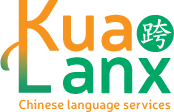Interpreting
Our Chinese interpreter assists during meetings, delegation visits, speeches, tours and in court, just to name a few. You may not always be sure what kind of interpreting (simultaneous, consecutive) you need. That doesn’t matter: be as specific as possible in your request, describe your goal and if necessary we provide further advice along with our quote.
Hiring an external interpreter is often the bevst solution, even if you have staff who speak Chinese. The most important reason for this is that the interpreter posesses interpreting skills, including memory skills, quick translating and familiarity with the role of interpreter. However, another reason is that an external interpreter is not involved in your company and thus able to act neutrally, gaining the trust of your Chinese counterpart and translating without the distraction that involvement can bring.
The interpreter needs thorough preparation, and in order to achieve this, you should provide programmes, presentations and speeches beforehand. After all, you are the expert in your industry.
Consecutive interpreting
Consecutive interpreting means the interpreter translates what is being said while the speaker pauses and waits. On one hand, this slows down the speech, but on the other hand it is the cheapest option. Often it does not matter to wait for the interpreting, for example during a tour on your company premises or in your factories. You point out things, share stories, and the interpreter walks along and translates everything to Chinese. During speeches, consecutive interpreting is sometimes also applied.
Simultaneous interpreting
Sometimes simultaneous interpreting (SI) is the best option. This means two interpreters sit in a booth with microphones and headsets and take turns to translate. Whisper translation, in which an interpreter whispers a translation for a limited number of participants, is also simultaneous interpreting. SI is very intensive and you are therefore advised to have two interpreters take turns. The use of whispering sets can also be a solution. This may be ideal for delegations and tours.
Notary interpreting
If someone who does not speak Dutch fluently signs a deed at a notary public, they will need an interpreter. Contact us early to ensure we have someone available!

